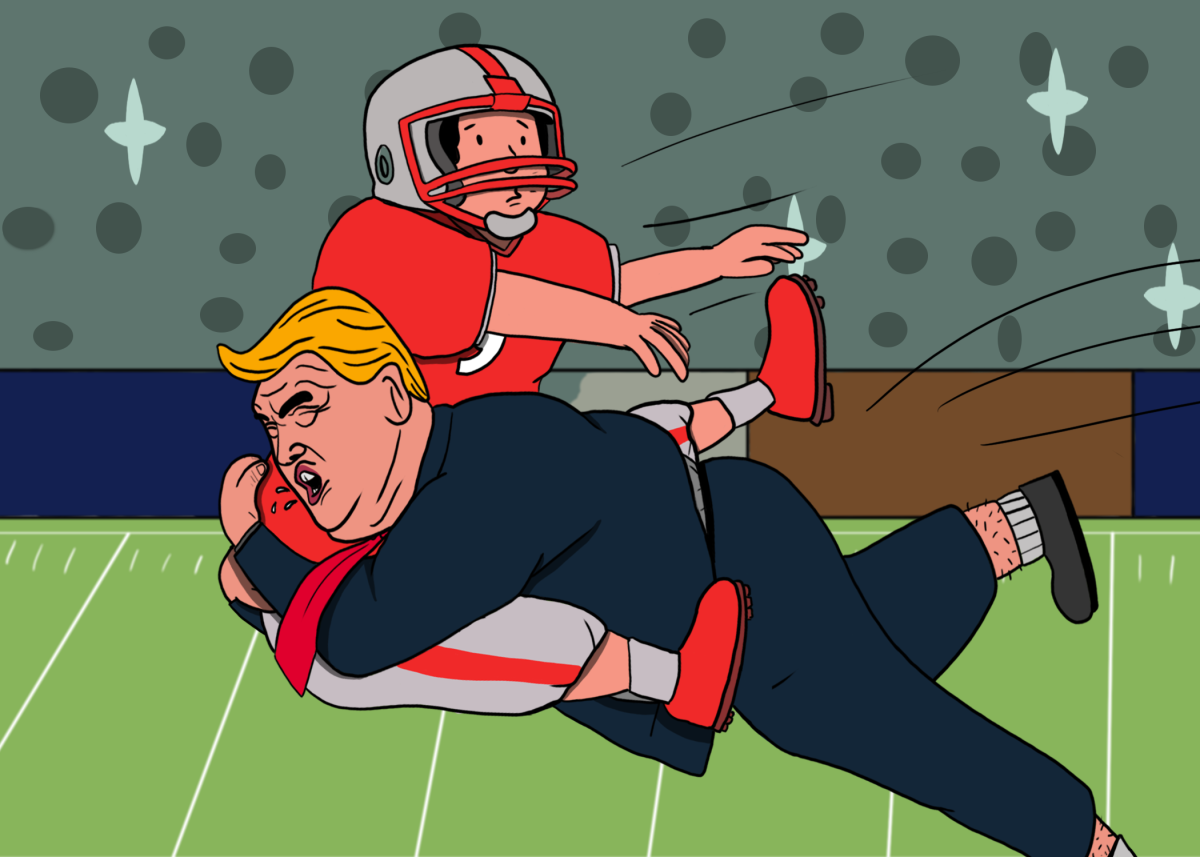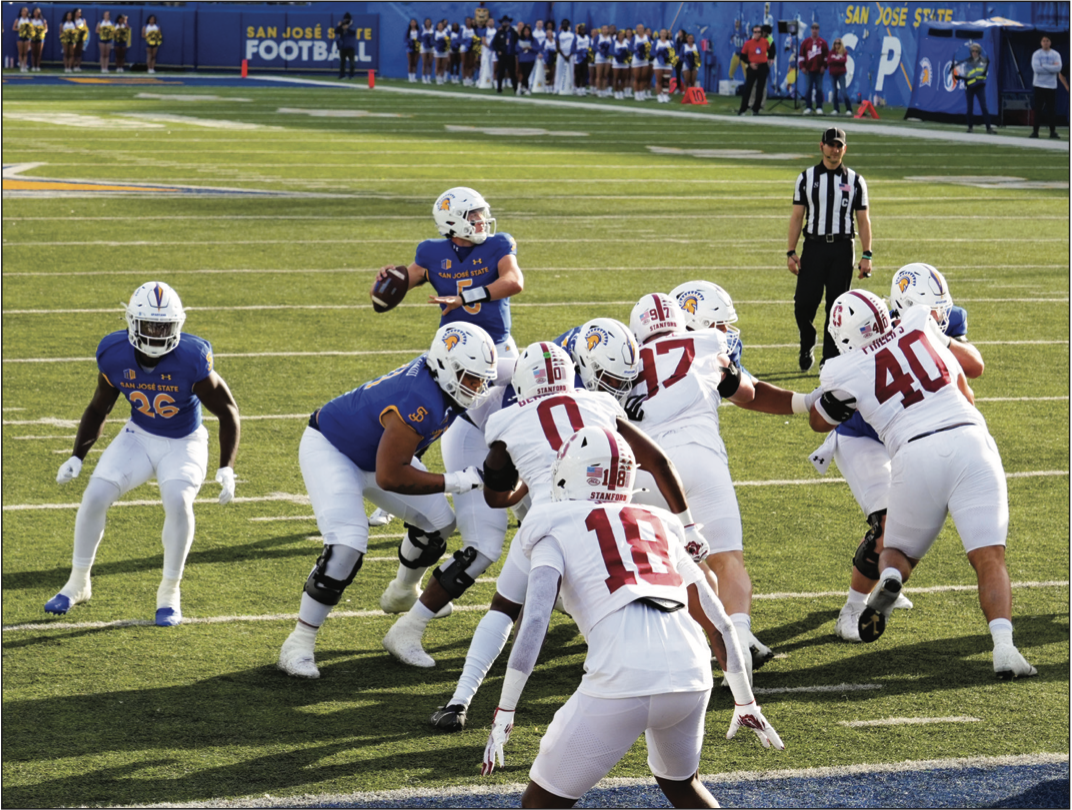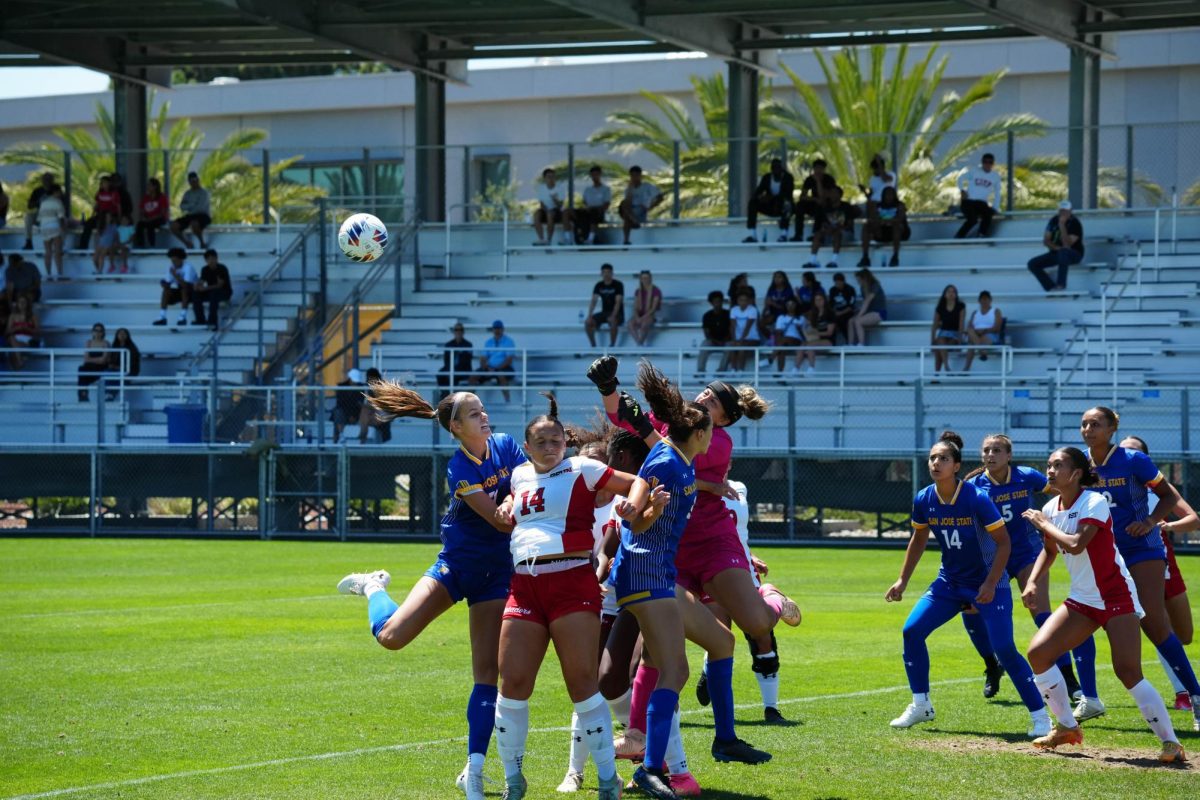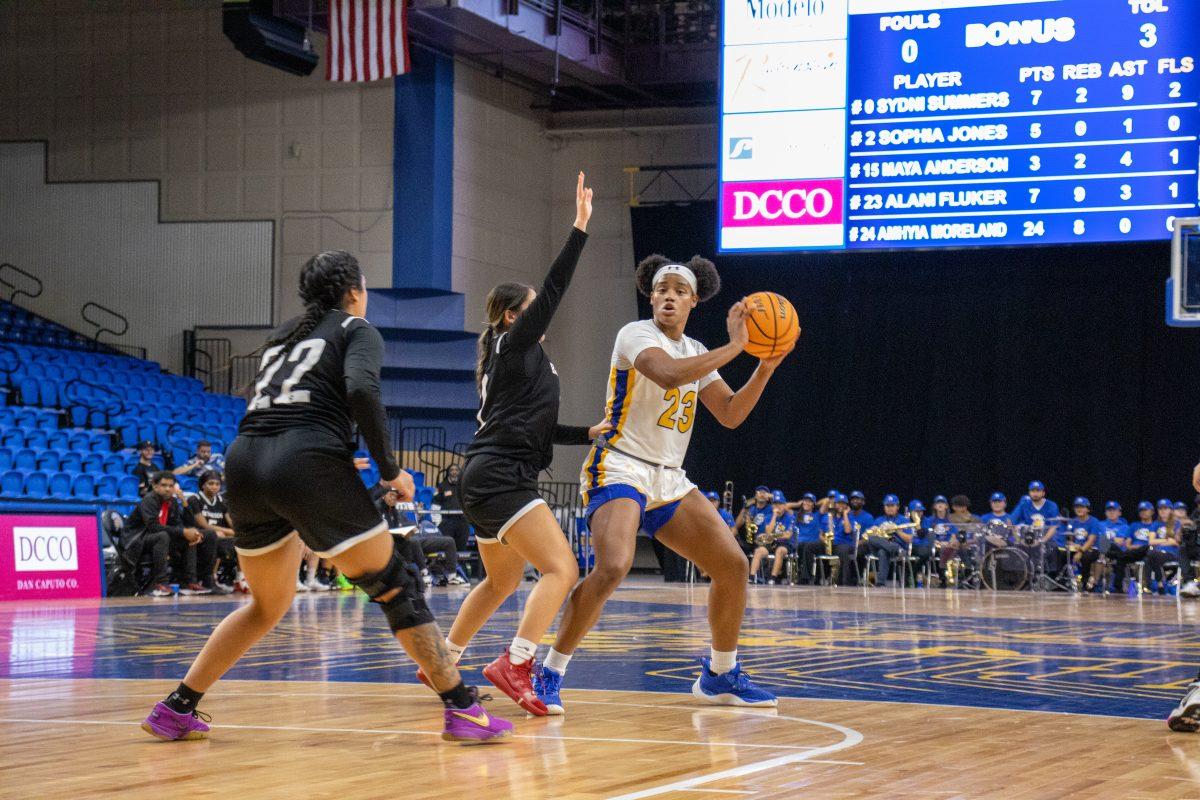Story updated Sept. 23
President Donald Trump’s influence on the Big Ten Conference’s decision to reinstate the football season this fall semester is a political play to boost his reelection chances and puts the lives of student-athletes at risk.
Amid the coronavirus pandemic, multiple college football conferences delayed this season to start back up in spring, according to a Sept. 17 Washington Post article. Until last week, this included the Big Ten Conference that consists of universities like Michigan State University, Penn State University and the University of Wisconsin-Madison.
Based on the voting patterns of previous elections, some of the states represented in this conference such as Michigan, Pennsylvania and Nebraska tend to lean Democrat. For the upcoming election, Trump will need to win over these states to earn more electoral college votes.
Trump’s stance on big name football universities returning to play can easily be interpreted as politically driven. This may be because of the fact that in a 2018-19 National Football Foundation report, 56% of the U.S. adult population described themselves as college football fans. After the Big Ten Conference initially announced it would postpone its football season because of the COVID-19 pandemic, Trump began advertising his involvement in getting the conference to reverse its decision.
“Had a very productive conversation with Kevin Warren, commissioner of the Big Ten Conference, about immediately starting up Big Ten football. Would be good (great!) for everyone- players, fans, country,” Trump tweeted on Sept. 1.
Not even one day after the announcement of the conference returning to play, at least one university is already dealing with repercussions and now has to damage control in order to protect its community.
The same day the Big Ten Conference announced its return in the fall, the University of Wisconsin-Madison issued a statement urging its students and staff not to gather and watch their school’s football games. The university also informed the community that more than 40 members of the athletics department tested positive for COVID-19.
According to the New York Times’ COVID-19 case tracker, Big Ten teams are still experiencing a rise in case numbers. In the past week in Wisconsin, there was an average of 1,870 cases per day, an increase of 131% from two weeks earlier. In Michigan this week, an average of 768 cases per day have been recorded, an increase of 3% from two weeks earlier.
Despite these numbers, the Big Ten Conference announced on their website Sept. 16 that its football season will continue this fall.
After the announcement, Trump tweeted about his influence, making sure it was clear to voters that he had played a part in the decision.
“Thank you to the players, coaches, parents and all school representatives,” Trump said in a Sept. 16 tweet. “Have a FANTASTIC SEASON! It is my great honor to have helped!!!”
Now it seems Trump has his sights set on influencing the Pac-12 Conference to return to play. On a strategic level this conference is very influential because it draws a large audience. According to a 2017 article from Pac-12, the conference experienced record-breaking views on games with fans watching more than 120,000 hours of video.
“Open up, Pac-12. Get going,” Trump said in a tweet on Sept. 16. “I said the same thing to the Big Ten and they did. And now I’m saying it to (the) Pac-12. You have time, you really have time right now. Get going.”
Interestingly, Trump ignored other conferences’ postponements including the Mountain West Conference, where San Jose State plays, and the Mid-American Conference.
This is likely because the states represented in these conferences including California, Nevada and New Mexico, tend to faithfully vote for the Democratic nominee so Trump may see these as a waste of his time.
Trump has politicized collegiate sports by targeting football conferences in states where he needs to earn votes to boost his reelection chances. He seems to be under the impression that college football is so important to voters that his part in making the seasons resume will increase his popularity.
According to a Sept. 17 New York Times article, Trump’s path to winning the White House shrinks considerably without winning electoral college votes in Michigan, Pennsylvania and Wisconsin, the states represented in the Big Ten Conference. If presidential candidate Joe Biden wins those three states and all of the states Hillary Clinton won in 2016 plus Arizona, he’ll have 270 electoral votes, winning him the presidency, according to a Sept. 5 CNN article.
In an effort to gain votes, Trump is willing to put the lives of college athletes on the line.










































